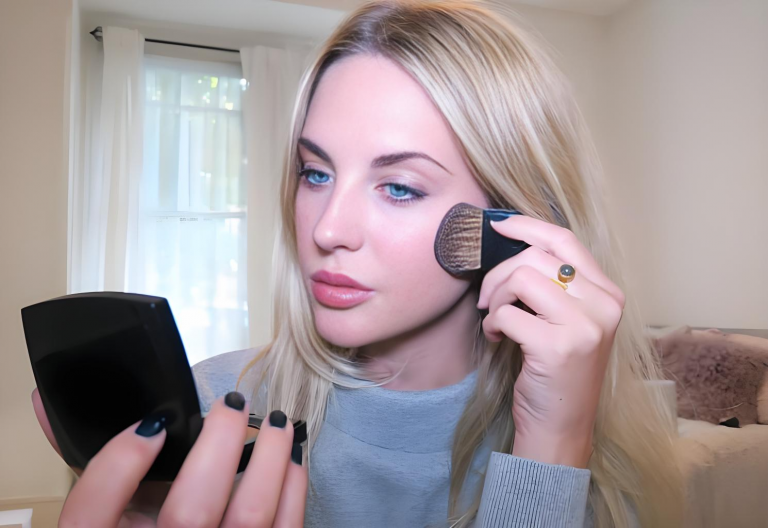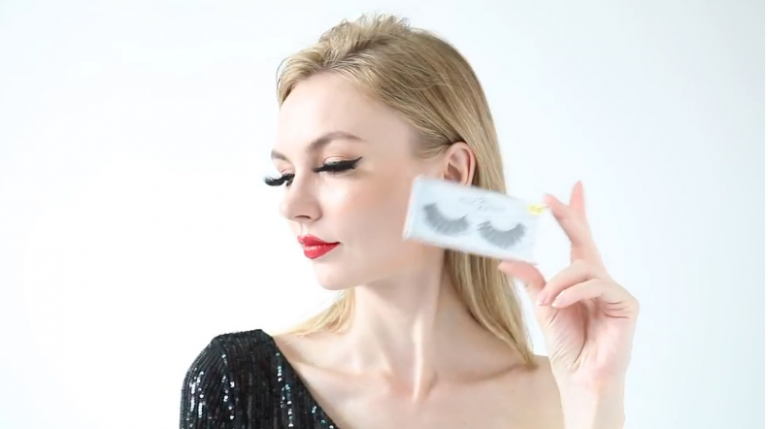Healthy, shiny hair is often the result of consistent care, and one of the most effective and budget-friendly ways to nourish your hair is by using DIY hair masks. Whether you’re dealing with dry, frizzy, or damaged hair, the right homemade mask can transform your locks into soft, healthy, and shiny strands. This guide will dive into the benefits of DIY hair masks, key ingredients to look for, and share some easy-to-make recipes that will help you achieve the hair of your dreams.
Introduction: Why DIY Hair Masks Are a Game-Changer
When it comes to hair care, the market is flooded with products promising shiny, healthy, and strong hair, but many of these products are packed with chemicals and artificial additives. That’s where DIY hair masks come in. Not only are they effective, but they’re also natural, customizable, and often more affordable than salon treatments or store-bought alternatives.
The Benefits of Homemade Hair Masks
Using DIY hair masks gives you control over what goes into your products. They are often packed with natural, nourishing ingredients that provide real benefits to your hair. From deep conditioning to moisture retention and scalp health, homemade masks can target specific needs like damaged ends or dry patches. Plus, you can skip the harmful chemicals that often accompany commercial hair care products.
Why DIY is Better Than Store-Bought
While store-bought hair masks may seem convenient, they often contain preservatives, fragrances, and other chemicals that can weigh your hair down or irritate your scalp. DIY masks, on the other hand, are fresh, customizable, and free from any harmful additives. They also allow you to experiment with different ingredients that suit your unique hair type.
Key Ingredients for Healthy Hair Masks
When creating a DIY hair mask, choosing the right ingredients is crucial. Here are some of the most effective and commonly used ingredients in homemade hair masks:
Natural Oils: Nourishment for Your Scalp
Oils like coconut oil, olive oil, and argan oil are rich in fatty acids and antioxidants. They help to moisturize the scalp, improve hair texture, and promote overall hair health. Oils also help to seal in moisture, making them perfect for dry and brittle hair.
Avocado: Packed with Nutrients for Moisture
Avocado is a powerhouse when it comes to hair care. Rich in vitamins like E, C, and B, avocado helps nourish and moisturize the hair, making it softer and more manageable. Its high fat content also helps repair damaged hair, making it a great option for those with dry or split ends.

Honey: The Ultimate Hydration Boost
Honey is a natural humectant, meaning it draws moisture into the hair and helps to lock it in. It’s also packed with antioxidants that protect the hair from damage. Honey can help with dry hair, frizz, and even dandruff.
Yogurt: Strengthens and Repairs
Yogurt is rich in proteins and lactic acid, which help strengthen the hair shaft and promote healthy growth. It also has moisturizing properties that can hydrate dry, brittle hair. Additionally, yogurt contains probiotics that may help improve scalp health.
Top 5 DIY Hair Mask Recipes for Different Hair Types
Now that you know what ingredients to look for, let’s dive into five DIY hair mask recipes that will help address common hair concerns.
1. Avocado & Olive Oil Mask for Dry Hair
If you’re battling dry hair, this avocado and olive oil mask will give your strands the moisture they desperately need.
Ingredients:
- 1 ripe avocado
- 2 tablespoons olive oil
Instructions:
- Mash the avocado until smooth.
- Mix in olive oil.
- Apply the mixture to damp hair, starting from the roots and working your way down to the ends.
- Leave it on for 20-30 minutes, then rinse with lukewarm water.
2. Coconut Oil & Honey Mask for Frizz Control
Frizzy hair? This combination of coconut oil and honey will smooth your strands and add shine.
Ingredients:
- 2 tablespoons coconut oil
- 1 tablespoon honey
Instructions:
- Warm the coconut oil until it’s slightly melted.
- Mix with honey.
- Apply the mask to your hair, focusing on the mid-lengths and ends.
- Leave it for 20 minutes before rinsing thoroughly.
3. Banana & Yogurt Mask for Damaged Hair
Bananas are packed with potassium, and combined with yogurt, this mask will help repair and nourish damaged hair.
Ingredients:
- 1 ripe banana
- 2 tablespoons yogurt
Instructions:
- Blend the banana until smooth.
- Mix with yogurt to create a creamy texture.
- Apply the mask to your hair and leave it for 15-20 minutes.
- Wash out thoroughly.
4. Aloe Vera & Tea Tree Oil Mask for Scalp Health
A healthy scalp is essential for healthy hair. This aloe vera and tea tree oil mask will soothe irritation and promote hair growth.

Ingredients:
- 2 tablespoons aloe vera gel
- 4-5 drops tea tree oil
Instructions:
- Mix aloe vera gel with tea tree oil.
- Massage the mixture into your scalp.
- Leave it on for 20 minutes and then rinse with warm water.
5. Egg & Honey Mask for Shiny, Smooth Hair
Eggs are packed with protein, which helps strengthen hair and add shine. This mask, combined with honey, works wonders on dull, lifeless hair.
Ingredients:
- 1 egg
- 1 tablespoon honey
Instructions:
- Beat the egg until it’s frothy.
- Add honey and mix well.
- Apply to your hair and leave it for 15-20 minutes.
- Rinse with cool water to prevent the egg from cooking.
How to Apply Your DIY Hair Mask for Best Results
To get the most out of your DIY hair mask, it’s important to apply it correctly.
Step-by-Step Application Process
- Prepare the mask according to the recipe.
- Apply to damp hair, starting from the roots and working your way down to the ends.
- Massage gently to ensure even coverage and stimulate blood flow to the scalp.
- Cover your hair with a shower cap or plastic wrap to keep the mask in place.
- Rinse thoroughly with lukewarm or cool water to avoid stripping moisture.
Tips for Maximum Absorption
- Use a wide-tooth comb to evenly distribute the mask.
- For an extra boost, you can heat the mask slightly before applying, but make sure it’s not too hot.
- If you have very dry hair, consider leaving the mask on for longer.
Common Mistakes to Avoid When Using Hair Masks
While DIY hair masks are easy to use, there are a few common mistakes that can prevent you from getting the best results.
Overuse of Ingredients
Using too much of certain ingredients, like honey or oils, can leave your hair greasy or weighed down. Stick to the recommended measurements for best results.
Not Rinsing Thoroughly
It’s essential to rinse the mask completely to avoid any residue left on your hair, which could cause buildup and make your hair look greasy.
How Often Should You Use DIY Hair Masks?
The frequency of using DIY hair masks depends on your hair type and its specific needs.
Recommended Frequency for Different Hair Types
- Dry Hair: Use once a week.
- Oily Hair: Use once every two weeks.
- Damaged or Color-Treated Hair: Use 1-2 times a week for extra nourishment.
- Normal Hair: Once a month is sufficient for maintenance.
Conclusion: Unlock the Secrets to Healthy, Shiny Hair
DIY hair masks are a fantastic, natural way to take care of your hair. By using fresh, wholesome ingredients, you can tackle dryness, frizz, and damage, all while nourishing your strands with the vitamins and nutrients they need. So, what are you waiting for? Try out these recipes and let your hair shine naturally!
FAQs
How do I know which DIY mask is right for my hair type?
It’s best to choose a mask based on your hair’s specific needs. Dry hair benefits from moisturizing masks, while oily hair needs lightweight ingredients that won’t weigh it down.
Can I leave a DIY hair mask overnight?
It depends on the ingredients. Some masks, like avocado or honey, can be left on overnight, but always ensure that the mask is not too heavy for your hair.
How long should I keep the hair mask on?
Typically, 15-30 minutes is sufficient. If you have very dry or damaged hair, you can leave it on a bit longer.
Are DIY hair masks safe for color-treated hair?
Yes, many DIY hair masks are safe for color-treated hair. In fact, they can help restore moisture and vibrancy. Just be sure to avoid ingredients like lemon or vinegar, which could affect the color.
Can I use these masks on oily hair?
Yes, but choose lightweight ingredients like aloe vera or tea tree oil to avoid adding excess grease to your scalp.









+ There are no comments
Add yours